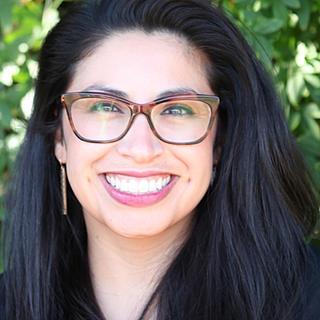What is Complex PTSD and why is it important to know about it?
- melissaibarsotti
- Oct 30, 2022
- 4 min read
Updated: Feb 9, 2023
Written by Melissa Barsotti, LCSW, EMDR Certified Trauma Therapist in private practice.

Pete Walker, therapist and author of Complex PTSD (CPTSD): From Surviving to Thriving gives us one of the best definitions of complex PTSD that I have read to date. "CPTSD is a learned set of responses, and a failure to complete numerous important developmental tasks. This means that it is environmentally, not genetically caused."
Essentially, CPTSD means that an individual has had a number of distressing events that have resulted in emotional/physical//mental/developmental/neurological harm.
I will share a crime I committed when I was 18 or 19 years old as an example. I worked at a local family restaurant and one day I had the misfortune of hitting a parked car in the parking lot of my place of work. Rather than call my family or ask for help, I fled the scene. Writing this is bringing me to tears as we speak. I have never been a delinquent. I have always had a good, kind-hearted soul and conscience. Unfortunately, I was raised in an environment that could not see my good heart and spirit. My father did not care how kind, smart, and loving I was. If things weren't his way at the time he demanded it, you were met with verbal cruelty. By the time I was 18 or 19 years old I learned that it was better to flee the scene, rather than have my dad find out and suffer the verbal, mental, and emotional abuse he would cause. If I spilled a glass of water, which I often did, I was met with the same amount of hatred and profanity, as if I had committed a crime. My dad finding out about me hitting this car, resulting in the police being called and us having to shell out money to fix this problem, would have been the end of me, or so thought my 18/19 year old self.
In this example, we know that my young self had learned that she could not ask for help, that she was alone, that she was shameful, stupid, and could not do anything right. Unfortunately, this is just one example of how my childhood negatively impacted my life. Sadly, it was true that I could not ask for help. If I asked for help, something bad would happen. By age age 5, I did not disclose to my parents that something terrible was done to me. At age 5, I already felt alone, different, like I did not belong.
PeteWalker also makes it very clear that CPTSD "is not only true for children who have had active exposure to adverse events (traumas of commission—someone committed something against them), but also for children who had traumas of OMISSION-failure to receive adequate nurturing, mirroring, engagement, or guidance during childhood."
In my own personal experience, traumas of omission had the most lasting and devastating impact on my emerging self. My parents' inability to accurately reflect back to me that they saw my hurt (this is known as mirroring- accurate reflection of a child's expressed thoughts and feelings), or that they saw whatever it is I was experiencing, was incredibly painful. This translates to feeling so desperately alone, and struggling to know who I truly was as a person, because my personhood, my "self" was not seen, validated, nurtured, or guided.
It is important to know what CPTSD is, because it often is referred to, diagnosed as, or identified as an endless list of diagnoses that you can find in the Diagnostic and Statistical Manual of Mental Disorders (DSM), currently in it's revised 5th edition (DSM-5-TR). This is a text that all mental health professionals use to have a common language, and that insurance providers can understand and provide reimbursement for. Unfortunately, CPTSD is not acknowledged in this text, but it is acknowledged by the World Health Organization (WHO), and the National Health Service (NHS) in the UK. As per the National Health Service, complex PTSD may be diagnosed in adults or children who have repeatedly experienced traumatic events, such as violence, neglect, or abuse. The symptoms of complex PTSD are listed on the NHS website as: Feelings of shame or guilt; difficulty controlling your emotions; periods of losing attention and concentration (dissociation); physical symptoms (headaches, dizziness, chest pains, stomach aches) • Cutting yourself off from friends and family; relationship difficulties; destructive or risky behavior, such as self-harm, alcohol abuse, or drug abuse; and suicidal thoughts (From CPTSDfoundation.org).
If you identify with my story, or any of the symptoms listed for CPTSD, please know that you are not alone, and that NOTHING is wrong with YOU. You may find yourself feeling as though you are playing developmental catch-up, learning and acquiring new skills that we should have learned in childhood, but due to our unique circumstances, such learnings were not available or provided.
Luckily, what is learned, can be unlearned. The skills we do not have can also be learned and practiced. Survivors often do experience severe depression, crippling anxiety, addiction, and may go through life feeling like they are on auto-pilot or any other state of dissociation. The good news is that there is nothing inherently wrong with us. What we experience IS TREATABLE. In fact, we are very dynamic, multi-faceted, and amazing people. The image of the beautiful crystal on this blog is chosen because I share this image with my clients, to let them know I see their inner beauty. That this incredible empathy and perspective of the world that we share, is the positive result of such tragedy. We have so much to offer this world because of our resilience.
Please know that I am by no means casting any judgment on any parents, including my own. In fact, I love my parents. I know they did the best they could with the resources they had. I share my story because it's not about them. It's about shining a light on complex mental health issues that so many of us experience. Hopefully one day the United States will also formally acknowledge CPTSD, resulting in less shame and more services.
References:
.png)




Melissa, your point, citing Pete Walker, that CPTSD is 'environmentally, not genetically caused' and a 'learned set of responses' really hits home. It underscores how early distressing events profoundly shape our coping mechanisms, as your car incident example subtly illustrates. Recognizing these foundational experiences is crucial for healing. For those curious about the environmental factors that contribute to such responses, understanding your own Adverse Childhood Experiences (ACEs) score can be a powerful first step in self-discovery and recovery.